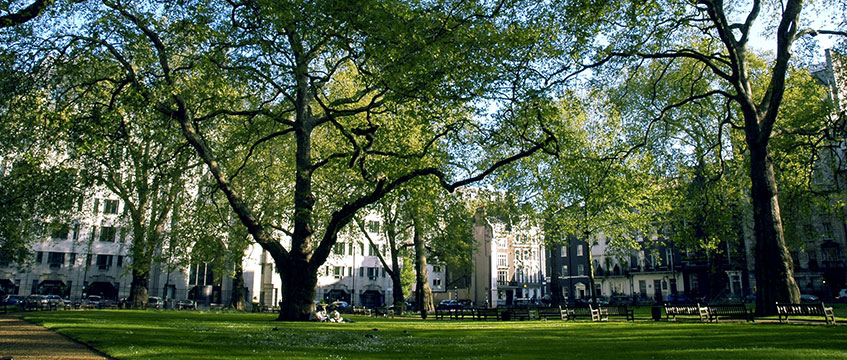Abu Dhabi royals and Lancer clash again at Court of Appeal
The complex legal battle between the Abu Dhabi royal family and Lancer Property Asset Management, the former manager of its £5bn portfolio of central London properties, today reached the Court of Appeal, where the royals are renewing their efforts to have key elements of Lancer’s defence struck out.
The case has been brought by 24 companies that are ultimately beneficially owned by Sheikh Khalifa bin Zayed bin Sultan Al Nahyan, emir of Abu Dhabi and president of the United Arab Emirates, whose London portfolio includes the Berkeley Square Estate.
They are suing Lancer Property Asset Management, which was fired as manager of the estate in 2017 after 16 years of service, for “tens of millions of pounds” in damages alleging dishonesty and fraud, with a trial scheduled for May 2021.
The complex legal battle between the Abu Dhabi royal family and Lancer Property Asset Management, the former manager of its £5bn portfolio of central London properties, today reached the Court of Appeal, where the royals are renewing their efforts to have key elements of Lancer’s defence struck out.
The case has been brought by 24 companies that are ultimately beneficially owned by Sheikh Khalifa bin Zayed bin Sultan Al Nahyan, emir of Abu Dhabi and president of the United Arab Emirates, whose London portfolio includes the Berkeley Square Estate.
They are suing Lancer Property Asset Management, which was fired as manager of the estate in 2017 after 16 years of service, for “tens of millions of pounds” in damages alleging dishonesty and fraud, with a trial scheduled for May 2021.
Today’s appeal concerns aspects of the Lancer defendants’ defence and the scope of the “without prejudice” rule, the general effect of which is to render inadmissible all negotiations genuinely aimed at settlement.
Representing the claimants, David Quest QC said the appeal “raises some novel questions about the scope of the without prejudice rule and the exceptions to it”.
Explaining the background to the dispute he said: “The claimant companies were represented in their dealings with Lancer by Dr Mubarak Al Ahbabi. The claimants’ case is that Dr Al Ahbabi and the defendants conspired to inflate the fees that were payable to Lancer under the asset management agreement for the purpose of funding onward payments that Lancer made to companies owned by Dr Al Ahbabi personally, principally a company called Becker. About £27m in total flowed via Lancer to Dr Al Ahbabi’s companies by that route in a period between 2005 and 2015.
“The claimants’ case is that those payments were bribes, Dr Al Ahbabi acted in breach of fiduciary duty to the companies and that the defendants dishonestly assisted him in participating in this arrangement to defraud the claimants.
“In their defence the defendants say, amongst other things, that these payments that were made by them to Becker were known to and authorised by the claimant companies and known to or authorised by Sheikh Khalifa as the ultimate beneficial owner.”
He said the defendants wish to rely on what was said within the course of a “without prejudice” mediation that took place between the claimants and Lancer in 2012, specifically that in their written position paper for that mediation Lancer made reference to the payments it had made to Dr Al Ahbabi’s company and that this paper was seen at the time by the claimants’ solicitors.
The claimants say this material was shared “without prejudice” and as a result is privileged, meaning it cannot now be relied on.
However, earlier this year, High Court judge Mr Justice Roth dismissed the claimants’ strike out application, ruling that the without prejudice rule is “not absolute” and that the Lancer defendants could rely on two exceptions that apply in this case.
The judge found that, as Lancer wanted to use evidence from the mediation about what they themselves said at the time, they shouldn’t be barred. The judge pointed out that if Lancer had attempted to mislead in the mediation, that could have been used against them.
The claimants are asking the Court of Appeal to overturn that decision and strike out this aspect of the defence.
The court is expected to rule on the strike out application in the New Year.
To send feedback, e-mail jess.harrold@egi.co.uk or tweet @estatesgazette
Picture © Nicholas Bailey/Shutterstock











